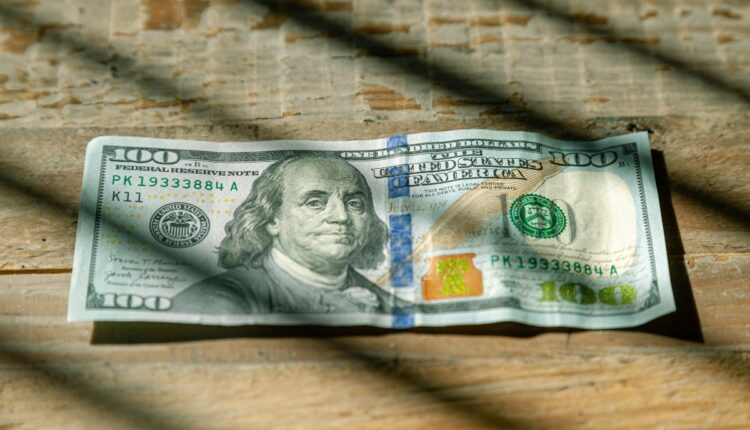Parallel dollar in Argentina exceeded 1,000 pesos per unit
The dollar known as "blue" reached an increase of 190% this week compared to the official exchange rate
In an unprecedented milestone, the parallel dollar, known as the “blue”, reached a new record in Argentina on October 10, surpassing the mark of 1,000 pesos per unit. This escalation represents a gap of 190% compared to the official exchange rate, and occurs amid the country’s unstable macroeconomic situation and pre-election uncertainty.
The blue dollar, to which savers turn due to restrictions on acquiring foreign currency in the official market, experienced an increase of 105 pesos, 11.1% more since the previous close, standing at 1,050 pesos, establishing a new gap mark exchange rate of 187% compared to the official exchange rate, which remains at 365.50 pesos.
This achievement represents a nominal record after having briefly fallen to 1,035 pesos per unit, which implies an increase of 9.5% in a single day.
The current situation in Argentina is characterized by a crisis marked by growing inflation, which reached 124.4% year-on-year in August and a poverty rate of 40.1% in the first half of 2023, at the same time as the country is dealing with with the shortage of reserves in the Central Bank.
In addition, there is the constant issuance of local currency and the last 22% devaluation carried out by the Executive Branch on August 14, just after the primary elections that gave the libertarian candidate, Javier Milei, the winner.
The latest element in the cocktail of factors contributing to the rise of parallel exchange rates is Milei itself, whom some parts of the financial world point to as responsible for this latest escalation. Milei called the peso an “excrement” and urged savers to liquidate their peso holdings and purchase US dollars.
In response to this situation, various private banking associations in Argentina issued a statement in which they request “democratic responsibility.” They highlight the need to have solid institutions and mature leadership, urging candidates who aspire to govern the country to show responsibility in their campaigns and public statements, avoiding unfounded statements that generate uncertainty in the population and volatility in financial markets.
Concern increases given that the candidate with the most votes in the primary elections, and favorite for the Argentine Presidency, proposes the dollarization of the economy, an approach that implies a devaluation and that worries peso savers, generating an inevitable increase in the currency.
Gustavo Ber, economist at Estudio Ber, emphasizes that the uncertainty about the outcome of the elections and concerns about the political and economic scenario until the transition on December 10 accumulate significant economic imbalances, which will require consensus and support to implement a plan of stabilization.
K. Tovar
Source: Bancaynegocios
(Reference image source: Live Richer, Unsplash)
Visit our news channel on Google News and follow us to get accurate, interesting information and stay up to date with everything. You can also see our daily content on Twitter and Instagram


